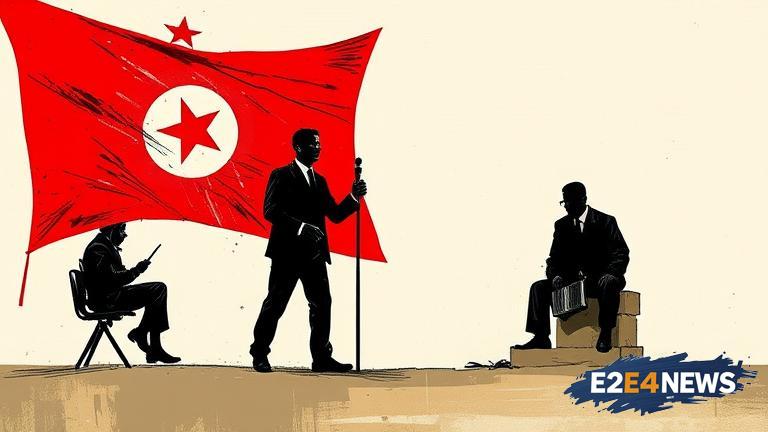The International Commission of Jurists (ICJ) has expressed deep concern over the arbitrary prosecution and detention of judges in Tunisia. The organization has urged the Tunisian authorities to take immediate action to end these practices, which undermine the independence and impartiality of the judiciary. The ICJ has noted that the prosecution and detention of judges are often based on vague and overly broad charges, such as ‘undermining the authority of the judiciary’ or ‘obstructing the course of justice.’ These charges are frequently used to target judges who have spoken out against the government or have made decisions that are unpopular with the authorities. The ICJ has emphasized that the independence of the judiciary is essential for upholding the rule of law and protecting human rights. The organization has called on the Tunisian government to ensure that all judges are able to perform their duties without fear of reprisal or intimidation. The ICJ has also urged the government to establish an independent and impartial body to investigate allegations of misconduct by judges, rather than relying on the executive branch to prosecute and detain them. Furthermore, the organization has recommended that the government take steps to strengthen the independence of the judiciary, including by ensuring that judges are appointed through a transparent and merit-based process. The ICJ has noted that the arbitrary prosecution and detention of judges have a chilling effect on the entire judiciary, causing many judges to self-censor and refrain from making decisions that may be unpopular with the government. This can lead to a lack of accountability and a culture of impunity, where those in power are able to act with impunity and without fear of consequences. The ICJ has emphasized that the situation in Tunisia is not unique, and that the arbitrary prosecution and detention of judges is a problem that affects many countries around the world. However, the organization has noted that the situation in Tunisia is particularly concerning, given the country’s history of authoritarianism and its ongoing transition to democracy. The ICJ has called on the international community to take notice of the situation in Tunisia and to provide support to the country’s judiciary and civil society. The organization has also urged the Tunisian government to cooperate with international human rights mechanisms, including the United Nations Special Rapporteur on the independence of judges and lawyers. In addition, the ICJ has recommended that the government take steps to promote a culture of respect for the judiciary and the rule of law, including by providing training and education to judges, lawyers, and other stakeholders. The organization has noted that the arbitrary prosecution and detention of judges is not only a problem for the judiciary, but also for the broader population, as it can lead to a lack of trust in the justice system and a sense of injustice. The ICJ has emphasized that the situation in Tunisia requires immediate attention and action, and that the government must take concrete steps to address the arbitrary prosecution and detention of judges. The organization has also called on the government to ensure that all those responsible for the arbitrary prosecution and detention of judges are held accountable, and that victims of these practices receive adequate compensation and reparations. Overall, the ICJ has urged the Tunisian government to take a comprehensive approach to addressing the arbitrary prosecution and detention of judges, one that includes both short-term and long-term measures to strengthen the independence and impartiality of the judiciary. By doing so, the government can help to promote a culture of respect for the rule of law and human rights, and ensure that all individuals in Tunisia are able to access justice and receive a fair trial. The ICJ has noted that the situation in Tunisia is complex and multifaceted, and that addressing the arbitrary prosecution and detention of judges will require a sustained effort and commitment from all stakeholders. However, the organization has emphasized that this effort is essential for promoting democracy, human rights, and the rule of law in Tunisia, and for ensuring that the country’s transition to democracy is successful and sustainable.
